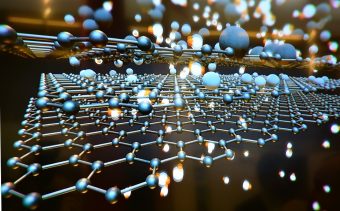
Wonder-material graphene could be used to cheaply and effectively make dirty water clean.
That’s the verdict from the National Graphene Institute (NGI) at the University of Manchester and the UK-based filter manufacturer LifeSaver, which have embarked on an 18-month research project to commercialise graphene-based water filters.
They say one of graphene’s many useful properties is effectively filtering water at high-flow rates – while LifeSaver’s current hollow-fibre membranes have an average sieve size of about 15 nanometres, which is small enough to filter out bacteria, microbial cysts and viruses, the company says this could be greatly reduced to catch more contaminants.
The scientists believe graphene could bring this sieve size down to as small as one nanometre, small enough to remove heavy metals, pesticides, certain chemicals and possibly even nuclear radiation.
They say a graphene-based commercially available filter could be used not only by outdoor enthusiasts but also scaled-up for use in humanitarian work.
Source: Energy Live News
